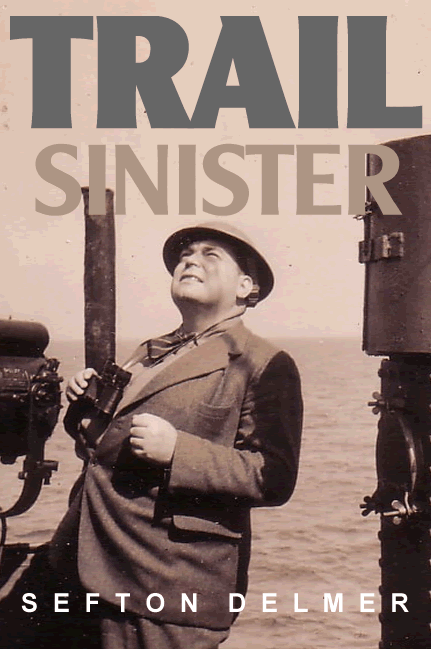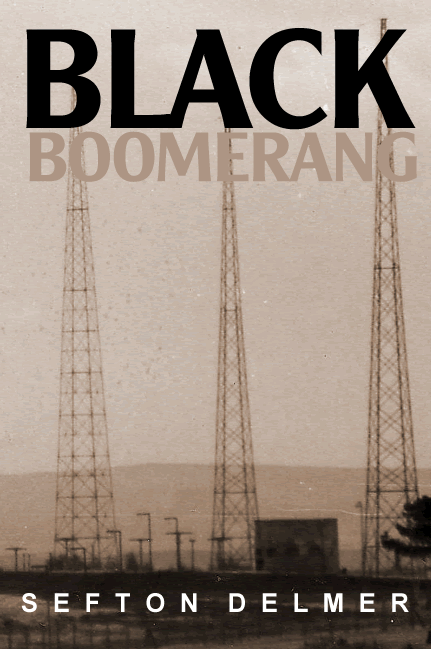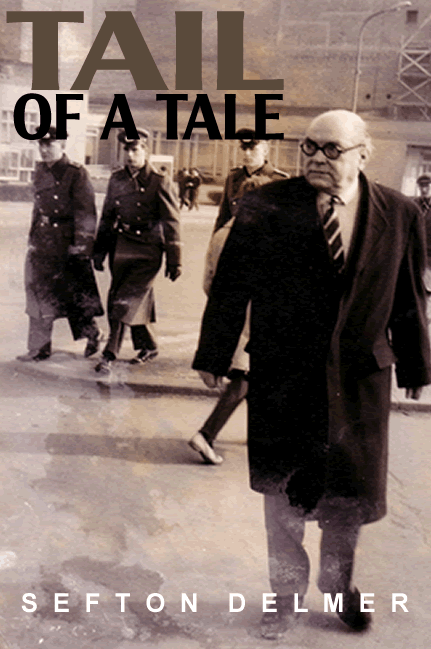Sefton Delmer
[back]
Holocaust
revisionism
[MI6. PsyOps.]
"H.M.G.'s secret pornographer" By Sefton Delmer
See: CD Jackson
James B. Donovan Albert G. Rosenberg
Eisenhower Sefton
Delmer
Human skin lampshades PsyOp
Buchenwald Flyer
Sources
BUCHENWALD A Dumb Dumb
Portrayal Of Evil
Quotes re Delmer
The German Udo Walendy outlined the many forgeries he had discovered, in
wartime atrocity photographs and other documents, either altered or forged by a
team headed by a British propagandist called Sefton Delmer.
The Zündel Trials (1985 and 1988) by ROBERT
FAURISSON
Walendy also analyzed the official Soviet film of the liberation of
Auschwitz, which had been kept secret by the Soviets for 40 years. The film
contained all of the footage by the Red Army taken at the liberation in January,
1945 and some months later. (28-7685, 7686) The Soviet cameraman made the
statement that the Soviet cameramen and kommandos did not know there were
supposed to be gas chambers at Auschwitz, and therefore they did not take
photographs of such gas chambers or their ruins. This film gave Walendy new
evidence that even the Soviet leaders did not have any knowledge of the gas
chambers. (28-7686, 7687)
Walendy testified that Sefton
Delmer was one of the key propaganda figures during the Allied occupation of
Germany immediately after the war. Delmer published the book Die Deutschen und
Ich (The Germans and I) in 1962 in which he described his working methods.
Walendy believed that without knowing Delmer's methods, political developments
could not be judged. (28-7659, 7660) Walendy was absolutely certain that he had
discussed the topic of Sefton Delmer with Zündel because the publication of
Delmer's book and the subsequent impact on the whole of historical research was
a sensation. (28-7664)
Sefton Delmer was a foreign
reporter for the English Beaverbrook Press, and in that capacity accompanied
Hitler on many of his election tours. After Hitler came to power, Delmer was one
of the most respected foreign journalists in Berlin. In 1940, Delmer was the
official news announcer on the BBC and was in a position, without even
consulting the British Foreign Minister, to turn down an offer of peace made by
Hitler. Subsequently, he was the propaganda leader in the British Information
Ministry and had a large staff. He carried out so-called "black propaganda"
after the end of the war. He was sent to the British-occupied zone in order to
co- ordinate the black propaganda with the French, Soviets and Americans.
(29-7883)
Delmer was the head of "black
propaganda," meaning forged documents. He managed not only groups of people
working in this type of work, but also managed the relevant radio stations. He
was a personal friend of the British Information Minister. In June, 1944, the
Information Ministry sent out an official directive to all the higher-echelon
civil servants and managers of the public media, instructing them that with the
Red Army in Europe, they would have to expect incredible cruelty from which they
could distract world attention only through a strengthened atrocity propaganda
campaign against Germany. (28-7660, 7661)
Sefton Delmer was the head
functionary who carried out this work for the British government. His main
method was to lie as exactly as possible so that the lies couldn't be uncovered
right away. After the end of the war in occupied Germany, Delmer co-ordinated
the "black propaganda" campaign with the French, the Soviets and the Americans.
These co- ordinated lies and inventions could not be recognized as such right
away. Delmer's work in occupied Germany lasted until 1947. During that period he
and his staff forged a wealth of German documents which reached official files.
He described this work to a large extent in his own book. Walendy testified that
most of these forged documents had the Germans committing a large number of war
crimes. Delmer provided the documents to the British Ministry of Information
which in turn sent them to the Nuremberg trial as official documents. The
International Military Tribunal, pursuant to the London Agreement, did not check
whether the documents were true or false, but simply entered them as evidence of
"generally-known facts." Because they were considered authenticated official
documents, they had now been introduced into history books. In this situation,
Walendy testified, even officially published documents had to be analyzed to
determine whether or not they were forgeries. (28-7662, 7663)
[Udo Walendy] The 'False News' Trial of Ernst
Zündel -- 1988
Quotes by Delmer
"I do not think my unit produced more than three items of
printed pornography during the whole war, not because I was squeamish, but
simply because I did not think the effort involved on our part would be
justified by the subversive effect on the Germans."
"Do I regret this pornography which
I perpetrated during my few years as a temporary government servant ? I
certainly do not on morale grounds. As far as I was concerned, anything was in
order which helped to defeat Hitler. And I don't regret the Chef's forays into
erotic propaganda. it helped him get launched much more quickly than he would
have been without it. Later I closed down his station and their was no more
pornography on those that preceded him". (ie Soldatensender)






